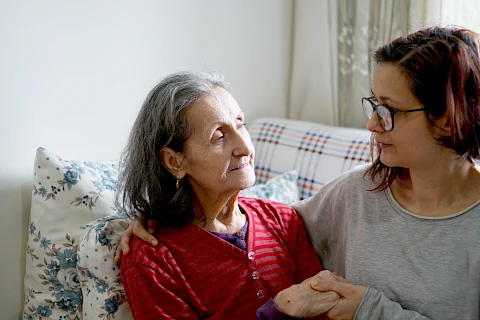
Memory loss often becomes a concern with advancing years, and distinguishing between everyday forgetfulness and more serious cognitive issues can be challenging. Recognizing the signs of memory problems and understanding when to seek professional assistance is necessary for maintaining a good quality of life. For seniors and their caregivers, being aware of these signs and knowing the appropriate steps to take can make a substantial difference in managing memory health effectively.
Normal Age-Related Memory Changes
It's normal for seniors to experience some memory lapses. Common issues might include occasionally forgetting names or where you placed your keys. These are typically harmless and part of the natural aging process. Other benign forgetfulness examples include misplacing items like glasses or wallets, forgetting an appointment but remembering it later, or needing help with tasks that were once easy, like setting up a new TV.
These lapses don't usually interfere with daily functions. Reassuring yourself and your caretaker can alleviate unnecessary worry.
Signs of Serious Memory Problems
While some forgetfulness is normal, certain signs may indicate a more serious cognitive decline. Typical indicators include repeatedly asking the same questions, difficulty following a conversation or story, and getting lost in familiar places.
The difference between normal and serious memory issues is that the latter often disrupt daily life. Concerning behaviors and symptoms include forgetting common words or mixing up words (such as calling a "watch" a "hand clock"), misplacing items and being unable to retrace steps, and changes in mood, personality, or behavior.
If you notice these signs, take prompt action.
When to Seek Professional Help
Deciding when to consult a healthcare professional can be challenging. You should seek help if memory loss significantly affects daily activities, is accompanied by confusion or disorientation, or intensifies over time.
Early detection and intervention can make a big difference. If you notice serious memory issues, talk to your doctor. Keeping a record of symptoms can help during your visit.
What to Expect During a Memory Assessment
If you seek professional help, you'll likely undergo a memory assessment. This process usually includes an interview about your medical history, cognitive tests to evaluate memory, problem-solving, and language skills, and possibly brain imaging tests like an MRI or CT scan.
Preparing for a memory assessment involves bringing a list of symptoms and any medications you take. Having a family member or caretaker come along for support can also be helpful. This helps the healthcare provider get a complete picture of your situation.
Tips for Maintaining Cognitive Health
Maintaining cognitive health is possible with some lifestyle choices. Here are a few tips:
- Eat a healthy, balanced diet rich in fruits, vegetables, and whole grains.
- Stay physically active with exercises like walking or swimming.
- Engage in mental activities such as puzzles, reading, or learning new skills.
Equally necessary is social engagement. Joining clubs, volunteering, or simply chatting with friends can keep your mind sharp. Emotional well-being, too, plays a part in cognitive health. Practices like meditation or deep-breathing exercises can reduce stress and improve your overall mood.
Be Proactive About Memory Health
Understanding the difference between normal memory lapses and serious cognitive issues is necessary as we age. If memory problems are affecting you or a loved one and are causing concern, it is best to seek professional help. Taking proactive steps can make a significant positive difference in your cognitive health and overall quality of life.
It can be overwhelming to care for an elderly loved one experiencing memory loss. If you’re in Mesquite, Balch Springs, Dallas, Garland, or Rowlett, contact us at Senior Helpers East Dallas for custom in-home senior services. We provide specialized Alzheimer's and dementia care with personalized home care plans that adjust as your loved one's needs evolve. Our trained team focuses on creating a supportive environment that ensures their comfort and well-being.